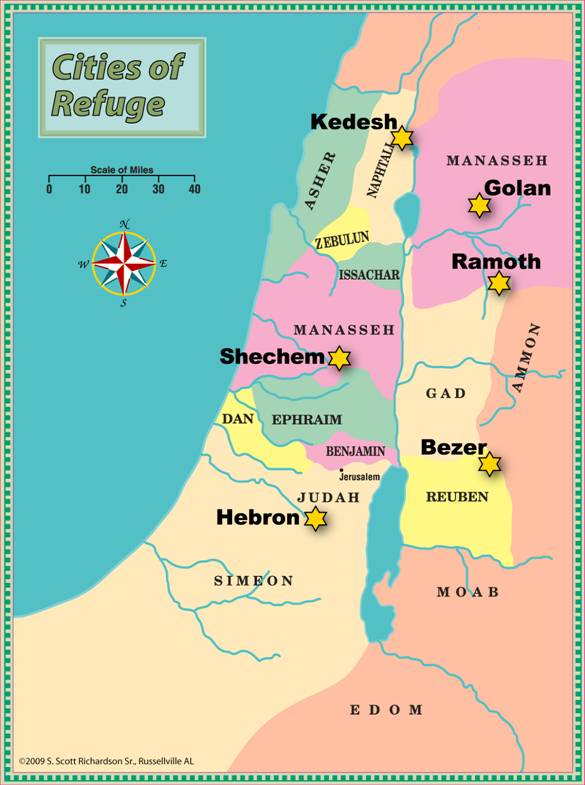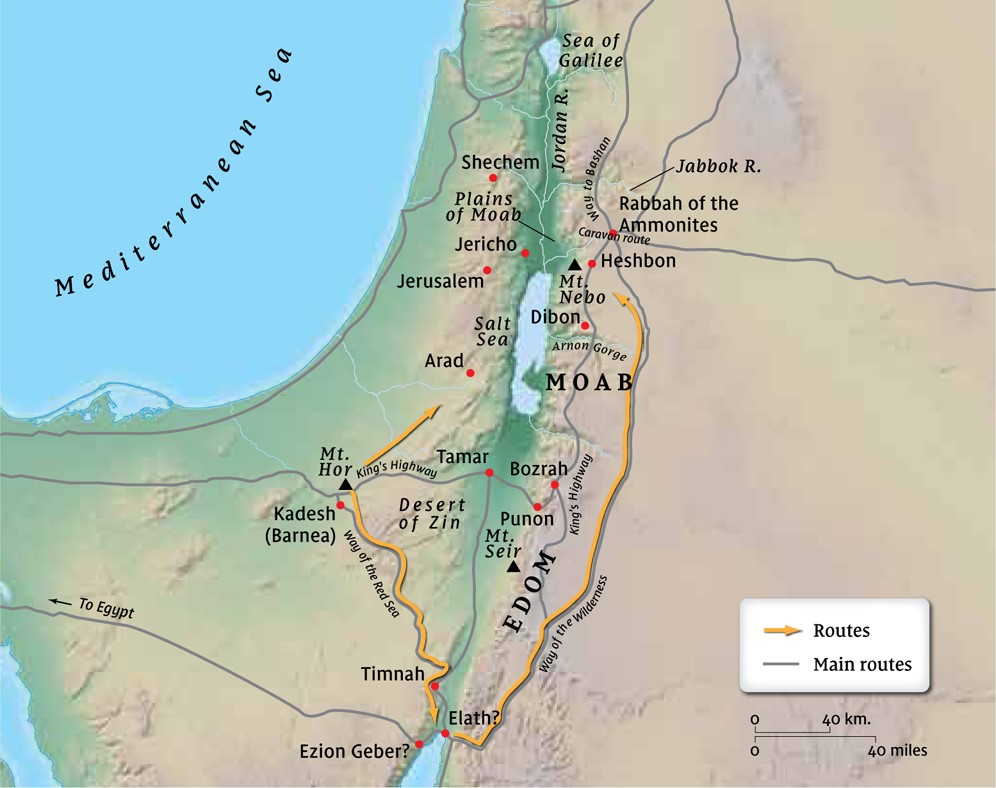21 The man Elkanah and all his house went up to offer to the Lord the yearly sacrifice and to pay his vow. 22 But Hannah did not go up, for she said to her husband, “As soon as the child is weaned, I will bring him, so that he may appear in the presence of the Lord and dwell there forever.” 23 Elkanah her husband said to her, “Do what seems best to you; wait until you have weaned him; only, may the Lord establish his word.” So the woman remained and nursed her son until she weaned him. 24 And when she had weaned him, she took him up with her, along with a three-year-old bull, an ephah of flour, and a skin of wine, and she brought him to the house of the Lord at Shiloh. And the child was young. 25 Then they slaughtered the bull, and they brought the child to Eli. 26 And she said, “Oh, my lord! As you live, my lord, I am the woman who was standing here in your presence, praying to the Lord. 27 For this child I prayed, and the Lord has granted me my petition that I made to him. 28 Therefore I have lent him to the Lord. As long as he lives, he is lent to the Lord.”
And he worshiped the Lord there. – 1 Samuel 1:21-28 ESV
If Samuel is the author of the first 24 chapters of the book that bears his name (which many scholars believe him to be), then he certainly undersells the miraculous nature of his birth. He simply records, “Elkanah knew Hannah his wife, and the Lord remembered her” (1 Samuel 1:19 ESV). There is no mention of God’s divine intervention. Of course, it is implied because Hannah had asked God to hear her prayer and end her barrenness. And Eli the priest had matter-of-factly stated, “Go in peace, and the God of Israel grant your petition that you have made to him” (1 Samuel 1:17 ESV). But Samuel cuts to the chase, leaving out any details about his mother’s miraculous pregnancy and his own improbable birth.
…in due time Hannah conceived and bore a son, and she called his name Samuel, for she said, “I have asked for him from the Lord.” – 1 Samuel 1:20 ESV
It is Samuel’s mother who provides the supernatural context of her conception and her son’s birth. She named the boy Samuel and this name was meant to reflect the gracious nature of God’s miraculous gift. She prayed and God heard. She asked and God answered. It is difficult to understand the exact meaning of the name Samuel. But one of the most logical explanations is that it derives from the Hebrew word for “name” (shem) and the Hebrew word for God (el). Thus “Samuel” means “name of God.”
Then why did Hannah associate her son’s name with the phrase, “I have asked for him from the Lord?” She appears to be using a figure of speech known as a paronomasia. The name Samuel is very similar in sound to the Hebrew word for “ask” (šā’al), which is pronounced shaw-el. So it would appear that Hannah was using a play on words that was meant to honor the role of Yahweh in the birth of her son.
Yet, Samuel fast-forwards through the nine months of Hannah’s pregnancy and then skips over the first few years of his own life. He picks up the story at the point at which he was weaned and able to be taken to the Tabernacle for Hannah to fulfill the vow she had made to the Lord. In the meantime, Elkanah made yearly trips to the Tabernacle to pay the offering associated with the vow, as determined by the Mosaic Law.
The Lord spoke to Moses, saying, “Speak to the people of Israel and say to them, If anyone makes a special vow to the Lord involving the valuation of persons…If the person is from a month old up to five years old, the valuation shall be for a male five shekels of silver, and for a female the valuation shall be three shekels of silver. – Leviticus 27:1-2, 6 ESV
Likely, Samuel was between 18 months and 5 years of age when he was weaned off his mother’s milk and able to live off solid food. It was then that Hannah and Elkanah took Samuel to the Tabernacle to dedicate him to the service of the Lord. It’s interesting to note that Elkanah had assumed responsibility for his wife’s vow.
Elkanah and all his house went up to offer to the Lord the yearly sacrifice and to pay his vow. – 1 Samuel 1:21 ESV
As the head of his household, Elkanah had the God-given authority to renege on his wife’s vow.
…on the day that her husband comes to hear of it, he opposes her, then he makes void her vow that was on her, and the thoughtless utterance of her lips by which she bound herself. And the Lord will forgive her. – Numbers 30:8 ESV
But he had chosen to honor Hannah’s commitment and was fully on board with the plan to turn over their infant son to Eli the priest. So, as soon as Samuel was weaned Hannah “took him up with her, along with a three-year-old bull, an ephah of flour, and a skin of wine, and she brought him to the house of the Lord at Shiloh” (1 Samuel 1:24 ESV), and Samuel adds the note “And the child was young” (1 Samuel 1:24 ESV).
Samuel provides few details concerning this momentous and, obviously, difficult moment in the life of Hannah and Elkanah. It could not have been easy for them to hand over their infant son to Eli, knowing that they would not have the joy of raising him under their own roof. From this moment on, Samuel would belong to the Lord. Hannah had made a vow to God and she was determined to keep it not matter the cost.
“O Lord of Heaven’s Armies, if you will look upon my sorrow and answer my prayer and give me a son, then I will give him back to you. He will be yours for his entire lifetime, and as a sign that he has been dedicated to the Lord, his hair will never be cut.” – 1 Samuel 1:11 NLT
Not only had she dedicated her son to full-time service in the Tabernacle, but she obligated him to keep the Nazirite vow. This lifetime commitment is outlined in the Book of Numbers.
And the Lord spoke to Moses, saying, “Speak to the people of Israel and say to them, When either a man or a woman makes a special vow, the vow of a Nazirite, to separate himself to the Lord, he shall separate himself from wine and strong drink. He shall drink no vinegar made from wine or strong drink and shall not drink any juice of grapes or eat grapes, fresh or dried. All the days of his separation he shall eat nothing that is produced by the grapevine, not even the seeds or the skins.
“All the days of his vow of separation, no razor shall touch his head. Until the time is completed for which he separates himself to the Lord, he shall be holy. He shall let the locks of hair of his head grow long.” – Numbers 6:1-5 ESV
From this moment forward, Samuel belonged to God and was essentially a slave to Eli and his two sons, Hophne and Phinehas. Little did Hannah know that she was turning over the welfare of her son to two “worthless” men who “did not know the Lord” (1 Samuel 2:12 ESV). Everything was not as it seemed in the Tabernacle and the high priest’s household. But from Hannah’s perspective, she was dedicating her son to Yahweh, whom she trusted completely. She had every confidence that he son was in good hands because he had been a gift from God Himself.
Having offered the appropriate sacrifices, Hannah made her intentions known to Eli, the priest.
“For this child I prayed, and the Lord has granted me my petition that I made to him. Therefore I have lent him to the Lord. As long as he lives, he is lent to the Lord.” – 1 Samuel 1:27-28 ESV
Chapter 1 ends with the statement, “he worshiped the Lord there” (1 Samuel 1:27 ESV). This appears to be a reference to Samuel, who immediately began to learn the ins and outs of worship and the everyday activities of the priestly caste. His new life had begun and he would soon find himself immersed in a very different environment than the one into which he had been born. As for Hannah, God graciously blessed her with five more children to take the place of Samuel.
…the Lord visited Hannah, and she conceived and bore three sons and two daughters. And the boy Samuel grew in the presence of the Lord. – 1 Samuel 2:21 ESV
God began the process of preparing Samuel for a life dedicated to His service. This young boy would grow up to be a central figure in the history of the nation of Israel, anointing its first two kings and providing wise counsel during their reigns. God had a plan and Samuel was to be an integral part of its implementation.
English Standard Version (ESV) The Holy Bible, English Standard Version. ESV® Permanent Text Edition® (2016). Copyright © 2001 by Crossway Bibles, a publishing ministry of Good News Publishers.
New Living Translation (NLT) Holy Bible, New Living Translation, copyright © 1996, 2004, 2015 by Tyndale House Foundation. Used by permission of Tyndale House Publishers Inc., Carol Stream, Illinois 60188. All rights reserved.

